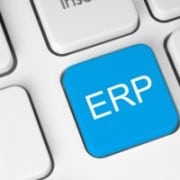ERP in 2025: Making sense of on-premises, cloud and hybrid solutions
Selecting the appropriate enterprise resource planning (ERP) deployment model—whether on-premises, public cloud, private cloud, or hybrid—is crucial for balancing performance, security, compliance, and cost, directly impacting your organization’s agility and innovation. In an article from NTT Data, enterprise application expert Deon du Preez explores the evolving landscape of ERP systems as organizations approach 2025. It highlights that traditional on-premises ERP solutions are increasingly being complemented or replaced by cloud and hybrid models. Cloud-based ERP offers benefits such as scalability, flexibility, and reduced IT overhead, making it attractive for many businesses. Hybrid ERP combines on-premises and cloud components, allowing companies to retain control over sensitive data while leveraging cloud advantages. The transition to cloud ERP is driven by digital transformation initiatives, changing customer expectations, and the need for real-time data insights. Despite the benefits, some organizations remain cautious due to concerns over security, compliance, and data sovereignty. The article emphasizes that the choice between on-premises, cloud, or hybrid ERP depends on factors like industry requirements, company size, and strategic goals. It predicts that by 2025, most enterprises will adopt a hybrid approach, blending different deployment models to optimize operations. Integration and interoperability will be critical, requiring advanced middleware and APIs. The importance of change management and employee training is underscored to ensure smooth transitions. Vendors are likely to offer more flexible, modular ERP solutions tailored to specific business needs. The rise of AI and automation within ERP systems will further enhance decision-making processes. Data security and privacy remain top priorities, influencing deployment choices. The article advises organizations to assess their long-term strategy, IT infrastructure, and compliance obligations carefully. It also notes that cloud ERP can facilitate innovation through faster deployment and updates. Overall, the future of ERP lies in adaptable, integrated solutions that support agility and growth. The article concludes that embracing these technological shifts is essential for organizations aiming to stay competitive in a rapidly changing digital landscape.




Leave a Reply
Want to join the discussion?Feel free to contribute!